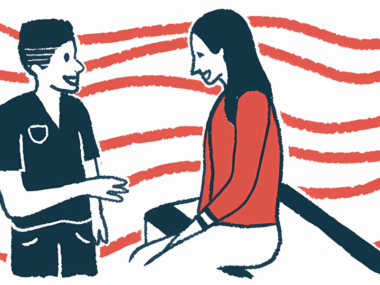Failing at Threshold Management and Paying the Price
Written by |

“Yuck! It peed all over me,” my granddaughter exclaimed as she released the toad back into the forest.
“That’s just his natural defense mechanism,” her father replied.
Like the toad, we also have our natural defense mechanisms. They are automatically called upon when a threat is perceived, real or not. The toad was not in any real harm, but the defense mechanism reacted anyway. This happens with us, too.
Persistent threat exposure over an extended period has negative consequences, like crossing over the threshold of emotional control and having to pay the price.
Normally, crossing the threshold of emotional control is a brief event, such as an outburst of crying, an expression of temper, or an eruption of yelling. But when a persistent threat of harm continues over an extended time, threshold management becomes more difficult, defense mechanisms are put in place more frequently, and threshold-crossing occurs more often. Left unattended, this chronic defense against perceived threats, combined with regular loss of control, leads to what I call darkness.
It is not easy for me to write about this. Firstly, I have been immersed in darkness only twice in my life, and both times followed extended periods of threat to my well-being. Secondly, I have not delved into the published material on this topic.
I do know that depression and anxiety are a challenge for nearly half of those diagnosed with Parkinson’s disease. But the experience of darkness is not limited to people with such diagnoses. It can happen to any of us — patients, caretakers, family members, or friends — when we are exposed to persistent perceived threat over an extended time.
The darkness experience can be described as crossing the threshold of emotional control and remaining stuck there. A flood of pain ensues, along with a desire to do anything to escape that pain.
Strong defense mechanisms are put in place to prevent the possibility of additional pain. The world becomes closed off, and a fragile ego is guarded night and day against insult. A simple phrase such as, “Would you like to come over for a visit?” is interpreted as, “I’m offended that you would even doubt that I would like to come and see you.”
There is spilling-out behavior, or emotions that lead to behaviors that are expelled onto others within the person’s sphere of influence, like kicking the dog when you have a bad day.
There is also a lot of “barking at the moon.” That is a phrase I use for describing a stream of complaining directed at all those things wrong in the world, most of which I have little control over. Yet, I sit here in the darkness howling at all those things.
Another reason it is hard for me to write about darkness is because I feel like a failure — a very big failure. When inside the darkness, I feel no compassion toward anyone, including myself. There is no faith, no serenity, no beauty, no meaning, and no purpose. It is very much the opposite of the authentic me that I choose to share with the world.
Yet it was real, and I hated it. But as a journalist, I chose to sit in the darkness and observe. I was surprised to see the intensity and severity of the defense mechanisms. These were 10-feet-thick concrete walls surrounding me, not letting anything in, but also not let anything out. I could see my partner trying to reach through the rock walls, bloodied knuckles to show for it. She never left my side.
One of the worst problems with the darkness experience is the lack of self-observation and accurate self-monitoring. It is one of the reasons why it is so hard to navigate solo.
Realistically, sitting in the darkness is truly a horrible experience — a serpent coiled around my soul with fangs sunk deep, sucking out the light. I knew I was not thinking clearly and could not be in the darkness one second longer. I softly screamed, “I need help,” with the deepest sincerity and open vulnerability that I could muster. My partner offered the sacred healing relationship that pulled me back. It is almost impossible to navigate out of the darkness sailing solo.
Finally, we are in our new home, building a new sanctuary and healing.
***
Note: Parkinson’s News Today is strictly a news and information website about the disease. It does not provide medical advice, diagnosis or treatment. This content is not intended to be a substitute for professional medical advice, diagnosis, or treatment. Always seek the advice of your physician or another qualified health provider with any questions you may have regarding a medical condition. Never disregard professional medical advice or delay in seeking it because of something you have read on this website. The opinions expressed in this column are not those of Parkinson’s News Today or its parent company, Bionews Services, and are intended to spark discussion about issues pertaining to Parkinson’s disease.






Trish Finley
I was diagnosed with PD in early 2000's. I have a deep brain stimulator that controls tremors. I have other symptoms that I could scream about. My heavenly father has placed me in contact with a new friend, Dr. Koehler, Parkinson's Solutions. I am learning more things about myself and the PD. A different attitude I will attain and help with nutrition that should give me new Hope. I am excited about a new way of looking at this disease.
Dr. C.
Hi Trish ~ hope you keep reading through my columns. Thanks for reading and commenting. Got some exciting thoughts to share in the days ahead, including book two in the series "Possibilities with Parkinson's: Developing a Self-Management Toolkit". Book one, "Possibilities with Parkinson's: A Fresh Look" is available online (Amazon, Barnes and Noble) and might be good place to get basic information.
Happy holidays,
Dr. C.